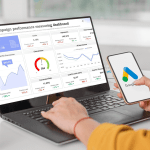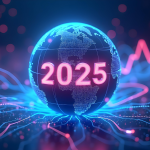Digital marketing in 2025 is more dynamic than ever, adapting to the constantly evolving landscape of technology, consumer behavior, and the global marketplace. Businesses now rely heavily on digital strategies to not only survive but thrive in competitive markets. With AI integration, voice search, personalized experiences, and data-driven insights shaping the future, a successful digital marketing campaign requires understanding the latest trends and tools.
1. Artificial Intelligence in Marketing
Artificial intelligence (AI) is transforming the marketing landscape by automating processes, analyzing consumer behavior, and predicting trends. AI tools can help businesses personalize customer experiences, segment audiences, and even automate customer service through chatbots. The key is leveraging AI to create targeted, engaging, and efficient marketing strategies that resonate with specific customer needs.
2. Video Content Dominance
Video marketing continues to dominate in 2025, with platforms like YouTube, TikTok, and Instagram reels attracting millions of users. Brands are increasingly using short-form video content to communicate their messages, showcase products, and engage users. Livestream shopping is also becoming a significant trend, where brands use live videos to interact with customers and promote products in real-time.
3. Voice Search Optimization
As voice-activated devices like Amazon Alexa and Google Home become more popular, optimizing for voice search is essential. Voice search queries tend to be longer and more conversational, so brands must focus on natural language keywords and long-tail phrases. Implementing structured data and ensuring mobile optimization will also improve visibility for voice searches.
4. Data Privacy and Ethical Marketing
In 2025, data privacy continues to be a major concern for consumers and businesses alike. New regulations like GDPR and CCPA have forced companies to be transparent about data collection and usage. Brands need to prioritize ethical marketing, offering clear consent options and maintaining customer trust by safeguarding personal data.
5. Personalized Customer Experiences
Personalization is no longer optional; it’s essential for engaging consumers and driving conversions. Brands are using data to tailor ads, emails, and website content to individual preferences. From personalized product recommendations to dynamic retargeting ads, customization ensures customers receive relevant content that enhances their buying journey.
6. Influencer Marketing
Influencer marketing is a powerful tool in 2024, as consumers trust recommendations from individuals they follow more than direct brand ads. Micro-influencers, who have smaller but highly engaged audiences, are especially valuable. Brands should collaborate with influencers to create authentic, relatable content that resonates with target demographics.
Conclusion
Digital marketing in 2025 requires adaptability, creativity, and a customer-centric approach. By leveraging AI, video content, voice search optimization, personalized experiences, and ethical practices, businesses can stay ahead of the competition and thrive in this dynamic environment.





